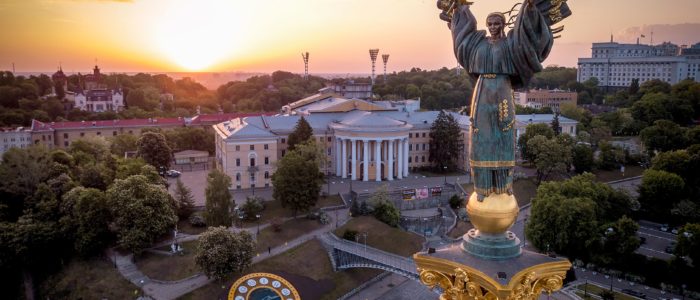Published
On Ukraine: Why the Crisis May Actually Intensify New Globalisation Rather Than Scale It Back
Subjects: New Globalisation Russia & Eurasia

In response to sanctions levied by the US after Russia’s invasion of Ukraine, Russia has effectively halted the supply of key rocket engines to the US. Since the 1990s, Russia has supplied 122 RD-180 engines to the US with 98 of them used to power Atlas launch vehicles.[1] Referring to this historic dependence of the US on Russian sensitive rocket technology, the head of Russia’s space agency, Dmitry Rogozin, ironically suggested that US astronauts could from now on use “broomsticks” to get into space. Shortly after, SpaceX CEO Elon Musk responded with a clip of his company’s Falcon 9 rocket while it launched 47 Starlink satellites into orbit, referring to it as the “American Broomstick”.[2] SpaceX is also rapidly developing its own “Super Heavy” booster for even heavier payloads.[3]
The point here is that global private leaders are not only able to fill voids that governments, for example in the US, increasingly seem to leave.[4] They can also jump in if existing cooperation between governments abruptly ceases, for example between the US and Russia on sensitive rocket technology. The new international order that we can observe forming since Russia’s invasion of Ukraine, with a potential long-term confrontation between the West and countries such as Russia and China, may appear as a step back in globalisation. However, it is key to note that some elements of new globalisation could actually be reinforced.
Many observers and even heads of state have announced that February 24th, the day of the Russian invasion into Ukraine, was a day when history changed. Global trends should be considered “before” and “after” this day. Global private leaders like Elon Musk have played a key role before the Ukraine crisis and they may be of even greater importance since, as they are able to fill new government voids that result from it quickly. Global private leaders are good at crisis response. When traditional cooperation between governments breaks away from one day to the next, it causes new opportunities for global private leaders to fill these voids. And they are often able to do so much faster than a government would be on its own, or by venturing out to other governments.
This influence of emergent orders of globalisation even goes beyond economic cooperation and can enter into the security sphere. One example is Elon Musk’s supply of his Starlink terminals to the Ukrainian government in order to maintain internet access in Ukraine.[5] The Ukrainian government has to rely on the help of global private leaders in many ways in the ongoing war. Elon Musk is not the only leader who has joined the war effort. Similarly, epistemic communities play a key role. Take the example of “Anonymous”, a tech-savvy global network of hackers that has declared war against Russia and is since coordinating cyberattacks on strategic Russian targets, including government websites.[6]
The notion that Putin has scaled back globalisation by his actions is misleading. New globalisation is rapidly changing, and several emergent orders of globalisation may be more significant than ever.
[1] See: https://www.newsweek.com/russia-nasa-broomstick-rocket-engines-ukraine-1684522
[2] See: https://www.news.com.au/technology/elon-musk-mocks-russian-space-agency-over-broomstick-insult/news-story/2d2bd38ba81b51ac1b1393937308b610
[3] See: https://www.space.com/elon-musk-shows-off-starship-sn20-super-heavy-stack-february-2022
[4] See: https://ecipe.org/blog/can-global-private-leaders-replace-government/
[5] See: https://edition.cnn.com/2022/03/03/tech/spacex-starlink-ukraine-internet-security-risks-scn/index.html
[6] See: https://www.standard.co.uk/insider/anonymous-hacker-group-russia-war-russian-tv-hacked-b986733.html